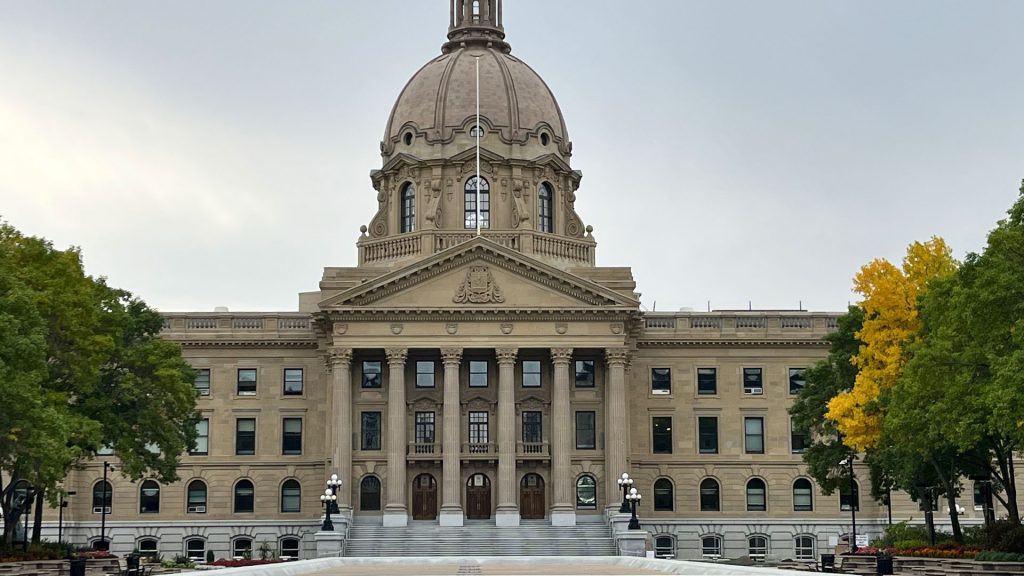
Alberta Legislature. Photo: Danielle Paradis/APTN
The Alberta government is providing $20.8 million over the next four years to implement recommendations from a task-force on how to fight human trafficking.
According to the 2021 report from the province three main categories of human trafficking are sex trafficking, labour trafficking, and the trafficking of organs.
All forms of trafficking involve force and coercion.
Police services in Canada reported 2,977 incidents of human trafficking between 2010 and 2020, according to a press release by the Alberta government.
Rachel Manichoose was happy to see money going towards the project. Manichoose was one of the victims of human trafficking who shared her story.
“I feel things are going better than I thought. It has been a couple years since I did the interviews but I am glad to see the money being distributed.
“Exploitation and human trafficking has always been a part of my life,” said Manichoose. “Since I was a child, familial to survival-based sex work when I was 12.”
Manichoose said that there is still a stigma to people who have gone through human trafficking and that survivors can be left feeling shame about their experiences.
Peer outreach workers say that trafficking is a complex crime to investigate. Victims may be fearful for their safety, or they may think the trafficker is their boyfriend.
Gap in the data on Indigenous communities
According to the report from the province on human trafficking, there is a gap in data on trafficking in Indigenous communities but that, “Some studies suggest that while Indigenous people make up only 4% of Canada’s population, over 50% of trafficking victims in this country are Indigenous.”
The MMIWG inquiry final report has testimonies from survivors of human trafficking, such as Jennisha Wilson who spoke about the journey Inuit women take in resettling in the south.
“In that 1,000 kilometres, a lot can happen, right? This is what contributes to missing and murdered Indigenous women, right? Having to go out of your way, which is a significant barrier, to accessing services will often push individuals to either not access services and continue being vulnerable,” said Wilson.
Country singer Paul Brandt, chair of the Alberta Human Trafficking Task Force, personally thanked Premier Jason Kenney during the funding announcement Sunday at Edmonton International Airport for his willingness to prioritize the issue, and for putting faith in Brandt to lead the group.
“He’s the only political leader I’ve met in my 17 years of advocating for trafficking victims and survivors who took the time and initiative to personally write a plan to address this horrific crime.,” said Brandt.
The money will establish an office to combat trafficking as well as a centre of excellence for research and data collection.
Task force recommendations ask for Indigenous-led services
Other task force recommendations that will be supported include a new grant for community projects and Indigenous-led and culturally appropriate services. Civilian positions that will focus on supporting victims and survivors throughout human trafficking investigations will also be funded.
“Human trafficking is far more prevalent, way more common, than the stats would suggest because it’s a hidden crime,” Kenney said at the announcement.
“It festers in the dark. There are victims who face fear, shame and self-doubt and some who will never report what they’ve gone through.”
The task force was appointed in May 2020 and engaged with nearly 100 experts and survivors of trafficking to provide guidance on how to best implement the government’s action plan to fight human trafficking.
Brandt said it was exciting to be part of the funding commitment at the airport, where he said he stood in 2019 for a partnership with the facility and other groups in the Edmonton region to fight trafficking, which he called “modern day slavery.”
“It has been our dream that special focus and permanent funding would one day become a reality. Today is that day,” Brandt said.










